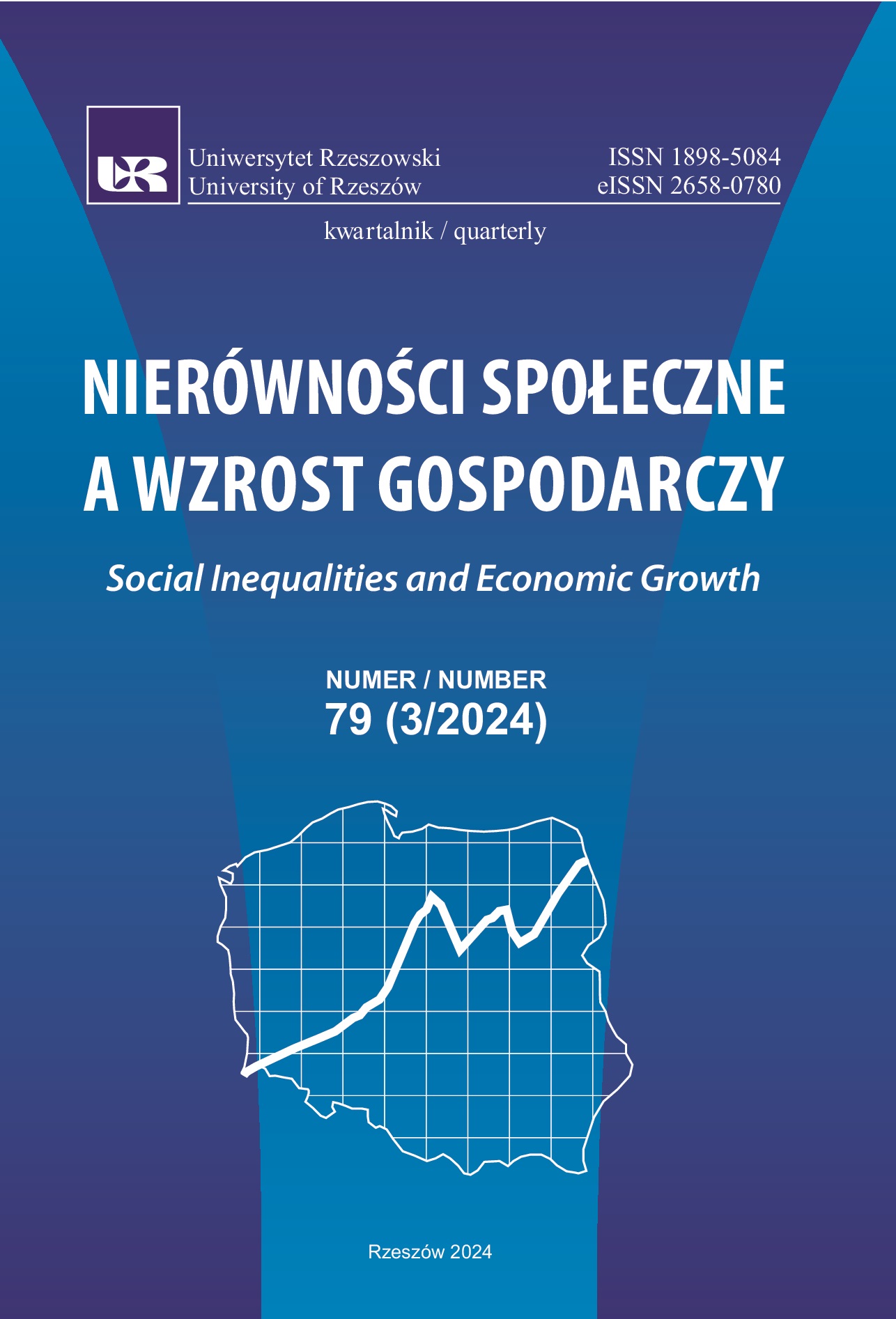Erich Fromm’s moral antonyms
DOI:
https://doi.org/10.15584/nsawg.2024.3.1Keywords:
biophilia-necrophilia, productivity-alienation, to have-to be, growth syndrome-decay, humanistic religion-authoritarianAbstract
When interpreting reality, Erich Fromm used innovative words that were, at the same time, completely opposite in meaning, giving the chosen terms an antonymic quality. Moral antonyms include combinations such as authoritarian-humanistic religion, authoritarian-humanistic conscience, priests-prophets, man-wolf-sheep, authoritarian-heteronymous obedience, idolatry-faith, way of being, needs-desires, destructive-constructive needs, alienation-productivity, decay-growth syndrome and necrophilia-biophilia. By employing terms that serve as semantic counterweights, Fromm described the moral situation of both individuals and society.
Downloads
References
Alexander, J.C. (2021). The prescience and paradox of Erich Fromm: A note on the performative contradictions of critical theory. Thesis Eleven, 165(1), 3–9. DOI: 10.1177/07255136211032830.
Carlisle, C. (ed.). (2020). Spinoza’s Ethics. New Jersey: Princeton University Press.
Cortina, M. (2015). The Greatness and Limitations of Erich Fromm’s Humanism. Contemporary Psychoanalysis, 51(3), 388–422. DOI: 10.1080/00107530.2015.999297.
Durkin, K. (2014). The Radical Humanism of Erich Fromm. New York: Palgrave Macmillan.
Eckhart, M. (2009). The Complete Mystical Works of Meister Eckhard. New York: The Crossroad Publishing Company.
Frankena, W.K. (1977). Spinoza on the knowledge of good and evil. Philosophia, 7, 15– 44. DOI: 10.1007/BF02379990.
Fromm, E. (1962). Beyond the Chains of Illusion: My Encounter with Marx and Freud. New York: Simon & Schuster, Inc.
Fromm, E. (1949). Man for Himself. An Enquiry into the Psychology of Ethics. London: Routledge & Kegan Paul Ltd.
Fromm, E. (2010). On disobedience. Why Freedom Means Saying “No” to Power. New York: HarperCollins Publishers.
Fromm, E. (1950). Psychoanalysis and Religion. New York: Yale University Press.
Fromm, E. (1973). The Anatomy of Human Destructiveness. New York: Henry Holt and Company.
Fromm, E. (2009). The Art of Loving. New York-London: Continuum.
Fromm, E. (1991). The Crisis of Psychoanalysis. Essays on Freud, Marx and Social Psychology. New York: Henry Holt & Company.
Fromm, E. (1942). The Fear of Freedom. London: Routledge and Kegan.
Fromm, E. (1964). The Heart of Man: Its Genius for Good and Evil. New York: Harper & Row.
Fromm, E. (1956). The Sane Society. London: Routledge & Kegan Paul.
Fromm, E. (2008). To Have or to Be? London-New York: Continuum.
Fuchs, Ch. (2020). Erich Fromm and the Critical Theory of Communication. Sage Journals, 44, 298–325. DOI: 10.1177/0160597620930157.
Funk, R. (1988). Erich Fromm’s concept of social character. Social Thought and Research, 20(1&2), 215–229. DOI: 10.17161/STR.1808.5133.
Hobbes, T. (2016). Levithan. New York: Routledge.
Itzkowitz, S. (2017). Erich Fromm: A Psychoanalyst for All Seasons. Psychoanalytic Perspectives, 1, 81–92. DOI: 10.1080/1551806X.2016.1209351.
Kietliński, K. (2007). Etyczne wybory w konsumpcji. Collectanea Theologica, 2, 69–82.
Lidz, V. (1982). Religion and Cybernetic Concepts in the Theory of Action. Sociology of Religion, 43(4), 287–305. DOI: 10.2307/3710829.
Marx, K. (2007). The Contribution to the Critique of Political Economy. Whitefish: Kessinger Publishing LLC.
Schimmel, N. (2009). Judaism and the Origins of Erich Fromm’s Humanistic Psychology. The Religious Reverence of a Heretic. Journal of Humanistic Psychology, 49(1), 9–45. DOI: 10.1177/0022167808319724.
Wilde, L. (2007). The Ehical Challenge of Touraine’s Living Together. The Journal of Global Ethics, 3(1), 39–53. DOI: 10.1080/17449620600991564.
Downloads
Published
How to Cite
Issue
Section
License
Copyright (c) 2024 University of Rzeszow

This work is licensed under a Creative Commons Attribution-NonCommercial-NoDerivatives 4.0 International License.


